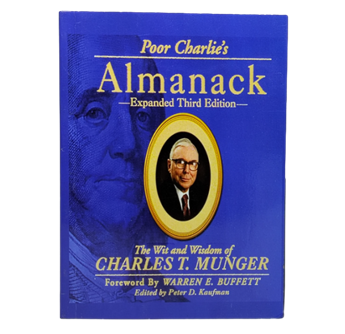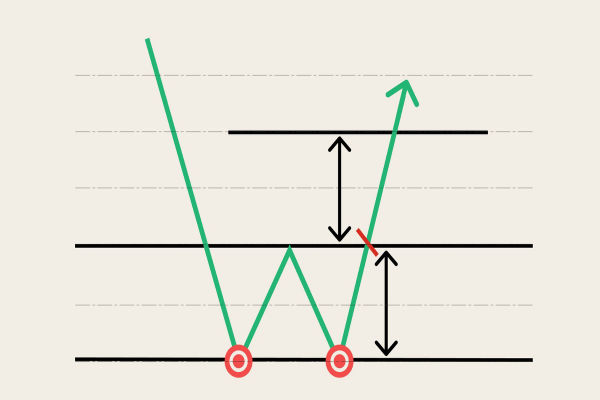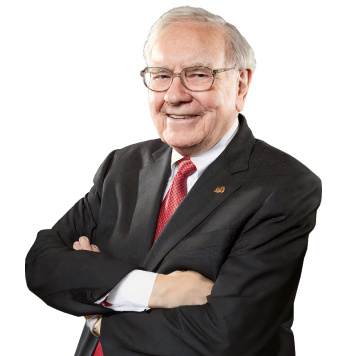
Few figures in the financial world have managed to influence generations of investors without ever chasing the limelight. Charles Thomas Munger—investor, polymath, philosopher, and the long-time business partner of Warren Buffett—was one such figure. Often described as the "brains behind Berkshire Hathaway" and the moral compass of value investing, Munger's ideas transcended financial markets. He championed the use of worldly wisdom, intellectual rigour, and ethical integrity in a world too often governed by emotion, fads, and speculation.
Though best known as Vice Chairman of Berkshire Hathaway, Charles Munger was much more than a second-in-command. He was a master of rational thought, a critic of irrational exuberance, and a quiet revolutionary in the world of finance. His legacy is built not just on the billions he helped create, but on the clarity of thought and timeless wisdom he left behind.
Early Life and Trading Experience: From Law to Capital
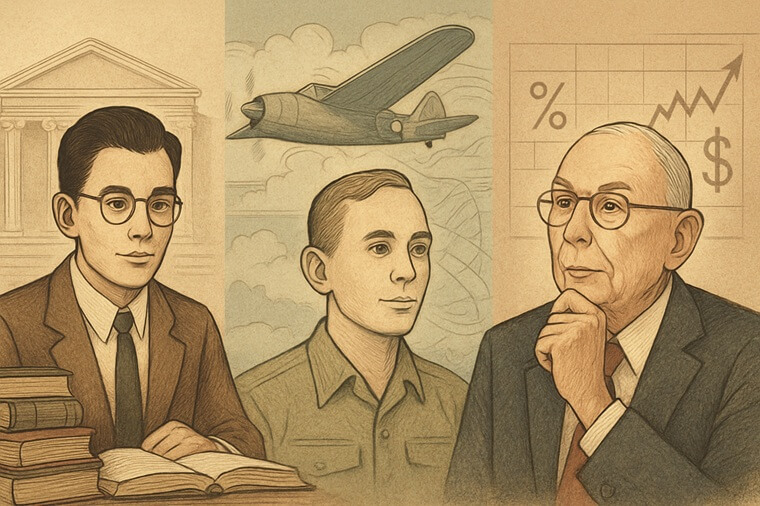
Born on 1 January 1924 in Omaha, Nebraska—just blocks away from the future home of Warren Buffett—Munger's upbringing was intellectually stimulating. His grandfather had been a federal judge, and from an early age, he exhibited a voracious appetite for learning.
After attending the University of Michigan, Munger joined the U.S. Army Air Corps during World War II, where he trained as a meteorologist. Following the war, he earned a law degree from Harvard Law School, graduating magna cum laude despite having no undergraduate degree. He went on to build a successful legal career in California, co-founding the firm Munger, Tolles & Olson.
But law was never going to be enough. In the 1960s, Munger transitioned into investing, first managing his own capital and then founding Wheeler, Munger & Company, an investment partnership that delivered compound annual returns of over 19%—significantly outperforming the Dow Jones Industrial Average.
This early trading experience gave Munger a deep understanding of markets, but more importantly, it exposed him to the limitations of conventional thinking. He began to craft an approach rooted not in formulas, but in mental models drawn from psychology, physics, biology, and history.
Investment Philosophy: Mental Models and Multi-Disciplinary Thinking
Munger's investment philosophy is famously captured in his call to build a latticework of mental models. In his view, to understand the world—and by extension, the markets—one must draw on the best ideas from multiple disciplines, not just finance and economics.
"To the man with only a hammer, every problem looks like a nail," Munger warned, highlighting the danger of narrow thinking.
He believed the key to sound decision-making lay in:
Inversion: Thinking backwards to avoid errors ("All I want to know is where I'm going to die, so I'll never go there").
Patience: The discipline to wait for the right opportunity ("The big money is not in the buying or selling, but in the waiting").
Quality investing: Focusing on great businesses at fair prices, rather than mediocre businesses at cheap prices.
Circle of competence: Investing only in what you understand deeply.
Avoiding leverage and speculation: He abhorred debt-fuelled risk-taking, calling it "the way to go broke."
Munger's philosophy reshaped Warren Buffett's own approach. Buffett, who was originally a Graham-style "cigar butt" investor (buying heavily discounted, low-quality stocks), famously said that partnering with Munger made him realise it was "far better to buy a wonderful company at a fair price than a fair company at a wonderful price."
Investment Achievements and Enduring Legacy
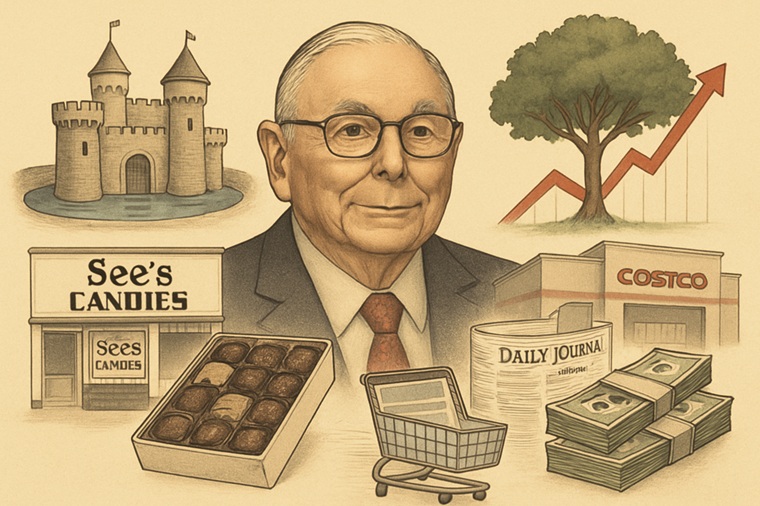
While Munger often stood in Buffett's shadow publicly, his intellectual imprint on Berkshire Hathaway is indelible. He was instrumental in pushing Berkshire toward higher-quality businesses with durable competitive advantages—so-called "economic moats."
Some of his most celebrated contributions include:
See's Candies: Acquired in 1972. this seemingly modest investment taught Buffett and Munger the power of brand loyalty, pricing power, and cash-flow generation.
Costco: Munger served on its board and was a strong advocate of the company's frugal, customer-first ethos. He once called it "the one retailer in the world that truly puts customers first."
Daily Journal Corporation: As chairman, Munger oversaw the company's shift from newspaper publishing to legal technology, all while managing its equity portfolio with impressive long-term results.
Berkshire's Cash Discipline: Munger reinforced the principle of holding cash as a strategic asset, allowing for opportunistic buying during downturns.
Under his and Buffett's stewardship, Berkshire Hathaway grew into a $900+ billion conglomerate, with a compound annual return far surpassing that of the S&P 500 over multiple decades.
Famous Case Study: BYD — Munger's Bet on Chinese Ingenuity
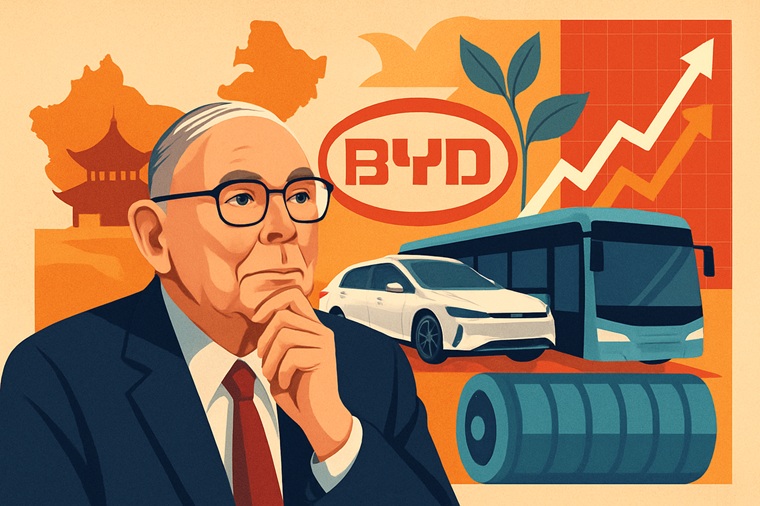
One of Munger's most fascinating—and unconventional—investments was BYD, a Chinese electric vehicle and battery company.
While Buffett initially expressed scepticism, Munger was unwavering in his support. He was impressed by Wang Chuanfu, BYD's founder, whom Munger described as "a combination of Thomas Edison and Jack Welch—with a touch of Confucius."
In 2008. at Munger's urging, Berkshire's MidAmerican Energy subsidiary invested $230 million for a 10% stake in BYD. Many in the West scoffed at the move, but over the years, BYD has grown into one of the largest electric vehicle manufacturers in the world. The investment turned into a multi-billion-dollar winner, showcasing Munger's ability to look beyond borders, headlines, and biases.
This case exemplifies Munger's contrarian insight, deep research, and confidence in long-term trends like electrification and energy innovation.
Selected Quotes and Timeless Wisdom
Munger's wit, wisdom, and brutal honesty are legendary. Here are some of his most memorable quotes—and the lessons behind them:
Lesson: Real investing requires discipline, humility, and effort.
Lesson: Continuous learning is non-negotiable in a rapidly changing world.
Lesson: Incentive structures drive human behaviour—ignore them at your peril.
Lesson: Education and mentorship are among the highest callings.
Lesson: First-order thinking isn't enough—second-order thinking wins.
Unlike many gurus who sought followers, Munger sought thinkers. His words didn't aim to impress, but to provoke deeper reflection.
Conclusion
Charles Munger passed away in November 2023. just weeks shy of his 100th birthday. Yet his ideas continue to resonate with clarity and urgency. In an age of short attention spans, meme stocks, and algorithmic trading, Munger's teachings stand as a beacon of rationality.
He reminded us that character matters more than cleverness, that truth should trump popularity, and that long-term thinking will always outlast short-term noise.
He was not only Warren Buffett's closest partner but also his intellectual equal—the indispensable half of one of the most successful partnerships in financial history.
More than that, Munger was a teacher to all who would listen. And in the world of investing, there are few honours greater than that.
Disclaimer: This material is for general information purposes only and is not intended as (and should not be considered to be) financial, investment or other advice on which reliance should be placed. No opinion given in the material constitutes a recommendation by EBC or the author that any particular investment, security, transaction or investment strategy is suitable for any specific person.








